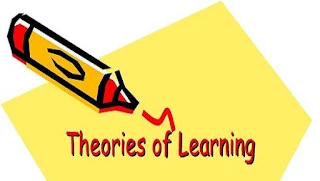The psychologists have conducted many researches to find out how an individual learns and changes his/her behavior, how the connection between stimulus and response is produced and how the internal and external factors influence upon the process of learning. Keeping all these questions into consideration, the psychologists have presented their theories and arguments. As the result of development of these thoughts and arguments, some theories developed which are termed as the theories of learning. Some of the most significant theories are discussed here under :
Behavioristic theory (approach) of learning :
Behavioristic theory of learning refers to associate the learning of an individual with observable and measurable changes. The behaviorists maintain that learning is concerned with the delivery of measurable activities. For example, driving a car, memorization of a poem, operating heart surgery, flying a commercial jet and compile the biographies of the distinguished educators are the Behavioristic activities which have direct concern with the Behavioristic learning. Following are the significant points regarding the Behavioristic theory of learning :- The Behavioristic learning is observable and measurable.
- The results of Behavioristic learning can be expressed in the numerical form.
- The Behavioristic learning is based on scientific and logical ways.
- The impartial and unbiased study of Behavioristic learning is possible.
- There is no room for inner feelings and changes in the Behavioristic learning.
- The Behavioristic learning is the product of the essential relationship between stimulus and response.
- All the actions and activities are subjected to the stimuli.
- The observable actions of the individual indicate their Behavioristic learning.
- The individual responds to the stimulus. The response brings about change and this change is termed as Behavioristic learning.
- There is a close relationship between stimulus and response in this learning approach.
Cognitive theory (approach) of learning :
Cognitive learning refers to the higher level learning involving thinking, knowing, understanding and anticipation.
Cognitive learning is a learning model which claims that the behavior of a person is affected by the changes in person’s thinking and knowledge. So to Say, the behavior represents the inner situation of the individual. Interpretation of a poem, criticism on a literary passage, discovery of a new law of learning and commentary of a book are some simple example of cognitive theory of learning. Following are the significant points regarding the cognitive theory of learning :
- The observable behavior is influenced by the thoughts of the individual.
- Human inner faculties are concerned with cognition.
- Learning is an inner process and observable acts are the reflection of learning.
- The inner change is necessary for the change in observable behavior.
- The human inner faculties, aptitudes and beliefs play a significant role in the selection of stimuli.
- The cognitive theory of learning is based on the inner conditions of the individual. The inner abilities decide the mode of response of a stimulus.
- The individual relates him/herself with the environmental stimuli in conformity with his/her mental abilities.
- The individual pays attention to only those stimuli which aid in the acquisition of goals.









0 Comments